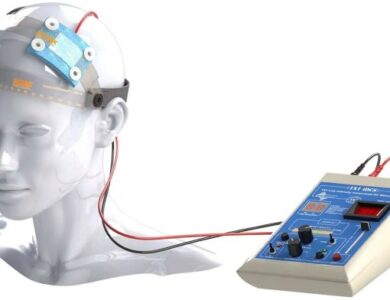Combatting Acne: Expert Insights on Causes and Prevention Strategies

Acne, a skin condition resulting from clogged or plugged hair follicles beneath the skin, manifests as small to large, red bumps that may be painful and pus-filled in some cases. This comprehensive health guide aims to provide a thorough understanding of acne, covering its causes, symptoms, diagnosis, and various treatment options recommended by healthcare professionals.
Causes of Acne
Acne is primarily caused by the clogging of hair follicles under the skin. Several factors contribute to this clogging, including:
- Excess sebum or oil production
- Accumulation of dead skin cells
- Bacterial infection of the follicle
- Hormonal changes during puberty, pregnancy, or with certain medications
- Diet, with high-sugar and dairy products potentially triggering or worsening acne
- Stress
- Family history
- Skin contact with greasy or oily substances
- Friction or pressure on the skin
Symptoms and Types of Acne
Acne commonly presents as small to large, red bumps on the face, chest, upper back, and shoulders. There are two main types:
- Non-inflammatory Acne:
- Whiteheads: Clogged hair follicles covered by skin
- Blackheads: Clogged hair follicles that are open
- Inflammatory Acne:
- Papules: Small bumps on the skin
- Pustules: Small bumps with pus accumulation
- Nodules: Large, round, hardened lumps under the skin
- Cystic Lesions: Large, round, hardened lumps with fluid/pus accumulation
Diagnosis and Medical History
Acne can usually be self-diagnosed but may require a medical professional’s evaluation for severe cases. Diagnosis involves a detailed medical history, including questions about other medical conditions, medication use, and mood disorders. A thorough examination of the pimples aids in accurate diagnosis.
Treatment Options
Treatment depends on the age, type, and severity of acne. Commonly recommended treatments include:
- Medication:
- Retinoids (Tretinoin, Adapalene, Isotretinoin)
- Antibiotics (Azithromycin, Tetracycline, Amoxicillin)
- Keratolytic Agents (Salicylic Acid)
- Dicarboxylic Acids (Azelaic Acid)
- Sulfones (Dapsone)
- Oral Contraceptives (Estrogen/Progestin)
- Antiandrogens (Spironolactone)
- Corticosteroids (Cortisone, Triamcinolone)
- Therapies:
- Phototherapy – Intense Pulsed Light (under physician supervision)
- Chemical Peel (under physician supervision)
- Surgery:
- Extraction of Pimples using special tools
Complications and Prevention
If untreated, acne may lead to scarring of the skin and emotional distress. Prevention strategies include proper hygiene, sun protection, avoiding certain foods, and lifestyle changes. Complications can be minimized through early intervention and adherence to recommended treatments.
Nutrition and Lifestyle Recommendations
Nutrition plays a role in managing acne. Foods to eat include those with a low glycemic index and rich in Omega-3 fatty acids, while avoiding high glycemic load and dairy products.
Questions to Ask Your Doctor
Patients are encouraged to engage with their healthcare providers by asking questions such as:
- Duration of treatment
- Potential side effects of treatments
- Follow-up frequency
- Managing the condition through diet and lifestyle changes
In conclusion, understanding and managing acne involve a holistic approach, combining medical interventions with lifestyle modifications. This health guide aims to empower individuals with the knowledge needed to make informed decisions about their skin health. Always consult with healthcare professionals for personalized advice tailored to individual needs.
DISCLAIMER: This just an informative article, please consult your doctor for more personalised guidance. This article is not substitute for expert health advise.




